Use this nursing care plan and management guide to provide care for patients with cushing’s disease. Enhance your understanding of nursing assessment, interventions, goals, and nursing diagnosis, all specifically tailored to address the unique needs of individuals with cushing’s disease.
What is Cushing’s Disease?
Cushing’s Disease (Cushing’s Syndrome; Hypercortisolism; Adrenal Hyperfunction) is a cluster of clinical abnormalities caused by excessive levels of adrenocortical hormones (particularly cortisol) or related corticosteroids and, to a lesser extent, androgens and aldosterone. The disorder is caused by adrenocortical hyperplasia (overgrowth of the adrenal cortex) secondary to pituitary overproduction of adrenocorticotropic hormone (ACTH), benign or malignant adrenal tumors that release excess glucocorticoids into the blood, prolonged or excessive administration of corticosteroids. The disease results in altered fat distribution, compromised immune system, disturbances in protein metabolism, and fluid and electrolyte imbalances.
Nursing Care Plans and Management
Changes in the physical appearance associated with Cushing’s disease can have a notable influence on the client’s body image and emotional well-being. The focus of this care plan is promoting skin integrity, improving body image, decreasing the risk of injury, and improving thought processes.
Nursing Problem Priorities
The following are the nursing priorities for patients with Cushing’s disease:
- Monitor and address signs and symptoms associated with Cushing’s disease.
- Administer appropriate medications to control cortisol levels, such as adrenal enzyme inhibitors or pituitary-targeted drugs.
- Monitor and manage comorbid conditions related to Cushing’s disease, such as diabetes or hypertension.
- Provide guidance on dietary modifications to manage weight gain and fluid retention.
- Educate patients on the importance of adherence to medication and follow-up appointments.
- Discuss and consider surgical options if necessary, such as pituitary tumor removal or adrenalectomy.
Nursing Assessment
Assess for the following subjective and objective data:
- See nursing assessment cues under Nursing Interventions and Actions.
Nursing Diagnosis
Following a thorough assessment, a nursing diagnosis is formulated to specifically address the challenges associated with Cushing’s disease based on the nurse’s clinical judgment and understanding of the patient’s unique health condition. While nursing diagnoses serve as a framework for organizing care, their usefulness may vary in different clinical situations. In real-life clinical settings, it is important to note that the use of specific nursing diagnostic labels may not be as prominent or commonly utilized as other components of the care plan. It is ultimately the nurse’s clinical expertise and judgment that shape the care plan to meet the unique needs of each patient, prioritizing their health concerns and priorities.
Nursing Goals
Goals and expected outcomes may include:
- The client will be normovolemic as evidenced by stable weight (or loss attributed to fluid loss), urinary output 30ml/hr or greater, balanced intake and output, absence or reduction of edema, HR less than 100 beats per minute, and absence signs of pulmonary congestion.
- The client will be free of fractures or soft tissue injuries.
- The client will implement measures to prevent injury.
- The client will identify interventions to prevent the risk of infection.
- The client will display an absence of infection as evidenced by normal body temperature and normal white blood cell count.
- The client will verbalize an understanding of Cushing’s disease and guidelines for therapy.
- The client will implement appropriate therapy.
- The client will verbalize feelings about the changes in appearance, sexual function and activity level.
- The client will demonstrate enhanced body image and self-esteem as evidenced by ability to look at, touch, talk about, and care for actual and perceived altered body parts and functions.
- The client will exhibit normal thought processes and improve mentation.
Nursing Interventions and Actions
Therapeutic interventions and nursing actions for patients with Cushing’s disease may include:
1. Preventing Fluid Overload
Individuals diagnosed with Cushing’s disease face a potential threat of fluid overload owing to various factors. Among these, heightened cortisol levels can lead to the retention of sodium and water, as well as hinder proper cardiac function. Moreover, some patients may encounter weight gain, which can exacerbate the risk of excess fluid volume. To alleviate this condition, it is crucial to keep a watchful eye on fluid intake and output, in addition to managing cortisol levels and associated comorbidities.
Assess for signs of circulatory overload such as crackles, dyspnea, edema, distended neck veins, shortness of breath, and tachypnea.
Detection of signs of circulatory overload will help in the immediate intervention. Due to excessive glucocorticoid and mineralocorticoid secretion, the client is predisposed to water and sodium retention.
Assess for cardiac dysrhythmias
As the level of potassium decreases in Cushing’s syndrome, the chances of abnormal heart rhythms increase.
Monitor vital signs, especially BP and HR.
Cushing’s disease may result in increased blood pressure resulting from the expanded fluid volume with sodium and water retention. Tachycardia happens as a compensatory response to circulatory overload.
Monitor the client’s sodium and potassium levels.
Excessive cortisol causes sodium and water retention, edema, and increased potassium excretion. Mineralocorticoids regulate sodium and potassium secretion, and excess levels cause marked sodium and water retention as well as marked hypokalemia.
Instruct the client to elevate feet when sitting down.
This position decreases fluid accumulation in the lower extremities.
Instruct the client to reduce fluid intake as indicated.
Limiting fluid intake is important in preventing circulatory overload.
Encourage the client to have low sodium and high potassium diet.
Too much sodium in the diet promotes fluid retention and weight gain. There should be adequate potassium in the diet since the elevation of cortisol levels causes hypokalemia.
Administer antihypertensive medications as prescribed.
Cortisol and mineralocorticoid excess causes increase blood pressure as a result of sodium and water retention.
Administer diuretics as prescribed.
Diuretics promote sodium and water excretion. Potassium-sparing diuretics such as Spironolactone (Aldactone) may also be prescribed to prevent additional loss of potassium.
2. Promoting Safety and Preventing Injury
Patients with Cushing’s disease are at increased risk for injury due to different factors related to the condition. Excess cortisol levels can lead to muscle weakness and wasting, which can increase the risk of falls and other injuries. In addition, osteoporosis, a condition characterized by loss of bone density, is a common complication of Cushing’s disease, which can increase the risk of fractures. Furthermore, patients with Cushing’s disease may experience fatigue, depression, and cognitive impairments, which can also increase the risk of accidents and injuries.
Assess the skin frequently to check for reddened areas, skin breakdown, tearing, or excoriation.
Cushing’s disease causes thinning of the skin because cortisol causes the breakdown of some dermal proteins along with the weakening of small blood vessels. Therefore the skin may become so weak which allows it to be damaged easily.
Assess the skin for signs of bruising.
The accumulation of fat caused by Cushing’s syndrome stretches the skin which is already thin and weakened due to cortisol action, causing it to hemorrhage and stretch permanently, healing by fibrosis susceptible to rupture with minimal trauma. The client may experience easy bruising.
Assess the client for decreased height and kyphosis (forward rounding of the back).
Excessive cortisol causes decreased bone formation, increased bone resorption, increased renal calcium excretion, and decreased calcium absorption from the intestines. These changes can result in decreased bone density and the development of osteoporosis. Spinal compression fractures lead to decreased height and exaggerated anterior-posterior curvature of the thoracic spine (kyphosis).
Assess the feces for occult blood.
Occult blood positive in the feces may be an early indicator of gastrointestinal bleeding.
Ask the client about problems with poor wound healing.
Increased cortisol levels increase the catabolism of peripheral tissues. Impaired nitrogen metabolism associated with Cushing’s disease contributes to impaired protein synthesis and delayed wound healing.
Prepare the client for a bone density evaluation.
This diagnostic procedure provides information about the loss of bone density.
Instruct the client about keeping the skin clean and moisturized.
Excessive dryness or excessive moisture increases the risk of skin breakdown.
Discuss with the client safety measures for ambulation and daily activities.
Precaution with activities is done to reduce the occurrence of trauma that can result in injury, bruising, or bleeding. Cushing’s disease is associated with loss of bone density and the development of osteoporosis. The client is at risk for pathological fractures as a result of minor stress on the weaker bones. The client needs to assess the home and work environment for hazards that would contribute to falls. These hazards include loose rugs, highly waxed or wet floors, and stairs with poor lighting or inadequate handrails.
Apply direct pressure over venipuncture sites, injection sites, or wounds for at least 1 minute or longer.
Due to capillary fragility, the client is prone to bleed easily. Direct pressure over the site helps control bleeding and reduce bruising.
Instruct the client in activities to decrease the risk of bleeding: Use an electric razor and use a soft toothbrush.
An electric razor reduces the risk of cutting the skin when shaving while a soft toothbrush decreases trauma to the gums.
Assist the patient with ambulation and hygiene when weak and fatigued. Use assistive devices during ambulation to prevent falls and fractures.
Ensure adequate lighting in the room.
Instruct the patient to correct body mechanics.
To avoid pain or injury during activities.
Encourage the client to eat a high-fiber diet with adequate fluid intake.
This measure minimizes the risk of developing constipation, which can result in lower GI bleeding.
Encourage the client to eat a high-protein diet.
Eating a high-protein diet can help prevent the muscle loss associated with Cushing syndrome.
Encourage the client to increase dietary intake of calcium, and vitamin D.
Clients with Cushing’s disease develops osteoporosis (fragile bones). Calcium and vitamin D are important in strengthening bones.
3. Initiating Infection Control and Preventing Infection
Patients with Cushing’s disease may have an increased risk of infection due to the effects of excess cortisol on the immune system. Cortisol is a hormone produced by the adrenal glands, and in excess amounts, it can suppress the immune system’s ability to fight infections. Additionally, people with Cushing’s disease may have other underlying health conditions or be on medications that increase their risk of infection. It is important for people with Cushing’s disease to work closely with their healthcare providers to manage their condition and minimize their risk of infections.
Assess frequently for subtle signs of infections.
Corticosteroids mask signs of inflammation and infection.
Avoid unnecessary exposure to people with infections.
Cortisol suppresses the immune system. Therefore clients may develop infection more frequently.
Stress the importance of adequate rest.
A client who is under long-term stress tends to suffer from bacterial infection, cold, and flu viruses.
Use strict medical and surgical asepsis when providing care.
A hospitalized client is susceptible to infection from a variety of bacteria, viruses, fungi, and other microorganisms that live naturally on the skin and in the hospital.
Encourage turning, coughing, and deep breathing and incentive spirometry every 2–4 hours.
This will assist in the mobilization of secretions.
Stress proper handwashing techniques.
Handwashing serves as the first-line defense against cross-contamination/nosocomial infections.
Emphasized the importance of good nutrition.
Adequate nutrition enhances the immune system’s natural defense mechanism
4. Promoting Positive Self-Image and Providing Emotional Support
Cushing’s disease can have a significant impact on a person’s body image due to the physical changes associated with the condition. Excess cortisol production can cause weight gain, particularly in the face, neck, and upper body, which can lead to a rounded or “moon” face, a hump on the upper back or neck, and increased body fat in the abdomen and chest. In addition to weight gain, Cushing’s disease can cause changes in the skin, such as thinning, bruising, and stretch marks, particularly on the abdomen, arms, and thighs. These changes can lead to feelings of self-consciousness and low self-esteem.
Assess the client’s coping mechanism.
Previously successful coping skills may be inadequate in the present situation.
Assess for any changes in personal appearance caused by the cortisol excess.
These changes may include fullness and rounding of the face (moon face), added fat on the back of the neck (buffalo hump), excessive weight gain, red cheeks (plethora), increased body and facial hair, and hyperpigmentation of skin, hair, and mucous membranes occur as a result of the increased level of melanocyte-stimulating hormones and ACTH.
Assess the client’s feelings about their changed appearance and coping mechanism.
Negative statements about changes in appearance indicate a disturbed body image. The client may withdraw from social interaction. Depression may occur.
Reassure the client that the physical changes are a result of the elevated hormone levels and most will resolve when those levels return to normal
The information helps the client develop realistic expectations about the changes in the physical appearance. This information may enhance the client’s willingness to participate in recommended treatments.
Encourage the client to verbalize feelings about the body image changes
It is worthwhile to encourage the client to separate feelings about changes in body structure or function from feelings about self-worth. The expression of feelings can enhance the client’s coping strategies.
Promote an atmosphere of acceptance and positive caring.
The client asks other people for feedback about their appearance. When the nurse responds to the client in an accepting manner, it supports the client’s adjustment to his or her appearance.
Promote coping methods to deal with the client’s change in appearance (e.g., adequate grooming, and flattering clothes).
Learning methods to compensate for changes in appearance enhances the client’s self-esteem. Helping clients remember how they managed body image issues in the past may facilitate an adjustment to the current issues.
Refer to local support groups.
Being exposed to people with the same experiences provide social support. Members of a support group may offer coping strategies that have proven successful.
5. Enhancing Cognitive Function and Thought Processes
Cushing’s syndrome, a condition characterized by high levels of cortisol in the body, can cause a range of cognitive and emotional symptoms. One such symptom is a disturbed thought process, which can include difficulty with concentration, memory, and decision-making. In addition to cognitive symptoms, people with Cushing’s syndrome may also experience emotional changes, such as depression, anxiety, irritability, and mood swings. These emotional symptoms can further impact cognitive function and interfere with daily activities and social relationships.
Explain to the client and family the cause of emotional instability.
High cortisol levels can be experienced by the body as anxiety, and insomnia is very common in clients on steroids and with high cortisol levels.
Encourage the client to discuss feelings and concerns.
This will assist the client in verbalizing concerns and provides the opportunity to deal with matters of the client.
Provide a positive and caring environment for the client.
The depressing effect of having a serious and impairing illness may also contribute to depression.
Repeat instructions as necessary using clear, simple language and short sentences
Cushing’s disease can affect a client’s concentration and memory.
Assist the client in psychotherapy.
Psychotherapy can help with depression, mood, and anxiety which are caused by Cushing’s disease.
Administer medications (such as ketoconazole, metyrapone) as indicated.
These medications are used to lower high cortisol levels due to tumors and may be helpful relieving some of the psychiatric symptoms associated with the high cortisol state.
6. Initiating Patient Education and Health Teachings
Patients with Cushing’s disease may lack knowledge about their condition due to its rarity and complexity. it is important for healthcare providers to provide clear and comprehensive information to patients about the disease process, diagnosis, treatment options, and lifestyle management. They can also refer patients to reliable resources and support groups to help them manage their condition and improve their quality of life.
Discuss the following diagnostic test with the client:
Some of the tests require cooperation in collecting urine specimens over an extended period.
See Diagnostic and Laboratory Procedures
Anticipate the need to discuss or reinforce the probable treatment in correcting the hypersecretion of hormones:
- If iatrogenic: Gradual discontinuation of excessive administration of corticosteroids as the client’s condition permits.
When Cushing’s disease is secondary to the prolonged administration of glucocorticoids, treatment is focused on discontinuing the medication. This approach requires a gradual lowering of the dose over time to decrease the risk of adrenal insufficiency if the drug is stopped suddenly. If the client’s condition does not allow for discontinuing glucocorticoids, attempts will be made to adjust the dose and frequency of administration to minimize suppression of the normal hypothalamic-pituitary-adrenal function. - If an intrinsic adrenocortical disorder: Probable surgery for removal of the adenoma, tumor, or adrenal glands.
Adrenalectomy is the treatment of choice for the client with an adrenal tumor or adrenal hyperplasia that is causing increased levels of serum cortisol. - If a disorder is secondary to pituitary hypersecretion: Transsphenoidal pituitary tumor resection or irradiation.
Surgical removal of the tumor by transsphenoidal hypophysectomy is the treatment of choice if Cushing’s syndrome is caused by pituitary tumors. Radiation therapy may be used as part of the management of these clients.
7. Administer Medications and Provide Pharmacologic Support
Administering medications and providing pharmacologic support is an important aspect of managing patients with Cushing’s disease. Pharmacotherapy aims to control cortisol levels, alleviate symptoms, and manage the underlying cause of the disease.
1. Adrenal Suppression Medications
Adrenal suppression medications play a crucial role in reducing the excessive production of cortisol, thus alleviating the symptoms associated with Cushing’s disease.
- Corticosteroid Inhibitors. Medications such as ketoconazole, metyrapone, and mitotane can help inhibit cortisol synthesis by suppressing adrenal gland activity. They are often used as a first-line pharmacologic treatment to control cortisol levels.
2. Pituitary-Directed Therapies
By targeting the pituitary gland, these medications help regulate the excessive production of ACTH, thereby reducing cortisol levels.
- Somatostatin Analogues. Drugs like octreotide or pasireotide can help inhibit the secretion of adrenocorticotropic hormone (ACTH) from the pituitary gland, which stimulates cortisol production.
- Dopamine Agonists. Bromocriptine or cabergoline may be used to suppress ACTH secretion in patients with Cushing’s disease caused by a pituitary adenoma.
3. Glucocorticoid Receptor Blockers
Glucocorticoid receptor blockers help counteract the physiological effects of cortisol, alleviating symptoms such as hypertension, glucose intolerance, and muscle weakness.
- Mifepristone. This medication acts as a glucocorticoid receptor blocker, preventing the binding of cortisol to its receptors and reducing the effects of excess cortisol in the body.
4. Symptom-Specific Medications
These medications help address specific symptoms and comorbidities associated with Cushing’s disease, supporting the overall management and well-being of the patient.
- Antihypertensives. Medications such as ACE inhibitors, beta-blockers, or calcium channel blockers may be prescribed to manage hypertension associated with Cushing’s disease.
- Glucose-Lowering Agents. For patients with Cushing’s disease-induced diabetes or glucose intolerance, antidiabetic medications like metformin or insulin may be used to regulate blood sugar levels.
5. Individualized Treatment Approach
Medication selection and dosing may vary depending on the underlying cause of Cushing’s disease, the severity of symptoms, and individual patient factors. Close collaboration with an endocrinologist or healthcare provider experienced in managing Cushing’s disease is essential to tailor the treatment plan to each patient’s specific needs.
8. Monitoring Results of Diagnostic and Laboratory Procedures
Monitoring the results of diagnostic and laboratory procedures is essential in the management of patients with Cushing’s disease. These procedures help assess the disease severity, monitor treatment response, and detect any potential complications. Regular monitoring of these diagnostic and laboratory results provides valuable information for evaluating disease control, treatment effectiveness, and potential complications associated with Cushing’s disease.
1. Computed tomography, magnetic resonance imaging, and selected arteriography.
These diagnostic studies are used to localize adrenal tumors and may identify pituitary tumors.
2. Urine-free cortisol, 17-ketosteroids (17-KS), 17-hydroxycorticosteroids (17-OHCS).
Urine-free cortisol involves collecting urine several times over a 24-hour and then testing it for cortisol. An adult with levels of cortisol higher than 50 to 100 mcg per day would be considered high. In Cushing’s disease, urine-free cortisol, levels of 17-OHCS (metabolites of cortisol) and 17-KS (metabolites of androgens) are increased.
3. Dexamethasone suppression tests.
This is used to evaluate adrenal gland function by measuring how cortisol levels change in response to an injection of dexamethasone. It is typically used to diagnose Cushing’s syndrome.
4. Pituitary Magnetic Resonance Imaging (MRI).
This imaging technique is used to visualize the pituitary gland and assess for the presence of pituitary adenomas, which are the most common cause of Cushing’s disease.
5. Abdominal CT/MRI.
Imaging of the abdomen may be performed to identify adrenal tumors or other abnormalities associated with Cushing’s syndrome.
These imaging studies help identify the underlying cause of Cushing’s disease and evaluate any changes or progression of adrenal or pituitary tumors.
6. Bone Mineral Density (BMD) Testing.
Dual-energy X-ray absorptiometry (DEXA) scan is commonly used to assess bone mineral density and monitor for the development or progression of osteoporosis, a common complication of long-term exposure to excess cortisol. Monitoring BMD helps guide interventions to prevent fractures and manage bone health in patients with Cushing’s disease.
7. Glucose Tolerance Testing.
Oral Glucose Tolerance Test (OGTT) or fasting glucose levels can help evaluate glucose metabolism and detect the presence of impaired glucose tolerance or diabetes mellitus, which can be associated with Cushing’s disease. Regular monitoring of glucose tolerance helps identify and manage any abnormalities, allowing for early intervention and appropriate treatment.
8. Lipid Profile.
Regular assessment of lipid levels, including total cholesterol, LDL cholesterol, HDL cholesterol, and triglycerides, helps monitor the impact of excess cortisol on lipid metabolism and cardiovascular health. Monitoring lipid profiles helps identify dyslipidemia and guide interventions, such as lifestyle modifications or medication, to reduce the risk of cardiovascular complications.
9. Assessing and Monitoring for Potential Complications
These nursing interventions aim to assess and monitor potential complications in patients with Cushing’s disease, allowing for early detection, timely intervention, and improved patient outcomes.
1. Monitor patient’s vital signs regularly.
Monitoring vital signs, including temperature, heart rate, blood pressure, and respiratory rate, helps assess the patient’s overall condition and detect any signs of worsening complications such as infection, hypertension, or cardiovascular distress. Any significant changes in vital signs can indicate the need for further evaluation and intervention.
2. Assess for signs of infection.
Patients with Cushing’s disease may have compromised immune function, making them more susceptible to infections. Nursing assessments should include monitoring for signs of infection such as fever, chills, increased white blood cell count, or localized signs of infection. Early identification and prompt treatment of infections can help prevent the spread of infection and reduce the risk of complications.
3. Assess patient’s skin.
Prolonged exposure to excess cortisol can lead to thinning and fragile skin, making patients with Cushing’s disease prone to skin injuries and poor wound healing. Regular skin assessments help identify any skin breakdown, pressure ulcers, or infections. Providing appropriate skin care, including keeping the skin clean and moisturized, using pressure-relieving devices, and implementing preventive measures, is crucial to prevent skin complications.
4. Monitor fluid and electrolyte imbalances.
Patients with Cushing’s disease are at risk of fluid retention, electrolyte imbalances (such as hypokalemia), and hypertension. Monitoring intake and output, daily weights, and laboratory values (such as electrolyte levels) can help detect fluid and electrolyte imbalances. Collaboration with the healthcare team to implement appropriate fluid and electrolyte management strategies is essential to maintain fluid balance and prevent complications.
5. Provide patient psychosocial support, education, and counseling.
Cushing’s disease can have a significant impact on patients’ emotional well-being and body image due to physical changes and potential long-term complications. Providing psychosocial support, education, and counseling can help patients cope with the challenges associated with the disease. Promoting self-care strategies, addressing body image concerns, and connecting patients with support groups or resources can contribute to their overall well-being.
Recommended Resources
Recommended nursing diagnosis and nursing care plan books and resources.
Disclosure: Included below are affiliate links from Amazon at no additional cost from you. We may earn a small commission from your purchase. For more information, check out our privacy policy.
Ackley and Ladwig’s Nursing Diagnosis Handbook: An Evidence-Based Guide to Planning Care
We love this book because of its evidence-based approach to nursing interventions. This care plan handbook uses an easy, three-step system to guide you through client assessment, nursing diagnosis, and care planning. Includes step-by-step instructions showing how to implement care and evaluate outcomes, and help you build skills in diagnostic reasoning and critical thinking.

Nursing Care Plans – Nursing Diagnosis & Intervention (10th Edition)
Includes over two hundred care plans that reflect the most recent evidence-based guidelines. New to this edition are ICNP diagnoses, care plans on LGBTQ health issues, and on electrolytes and acid-base balance.

Nurse’s Pocket Guide: Diagnoses, Prioritized Interventions, and Rationales
Quick-reference tool includes all you need to identify the correct diagnoses for efficient patient care planning. The sixteenth edition includes the most recent nursing diagnoses and interventions and an alphabetized listing of nursing diagnoses covering more than 400 disorders.

Nursing Diagnosis Manual: Planning, Individualizing, and Documenting Client Care
Identify interventions to plan, individualize, and document care for more than 800 diseases and disorders. Only in the Nursing Diagnosis Manual will you find for each diagnosis subjectively and objectively – sample clinical applications, prioritized action/interventions with rationales – a documentation section, and much more!
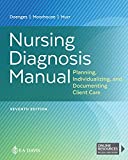
All-in-One Nursing Care Planning Resource – E-Book: Medical-Surgical, Pediatric, Maternity, and Psychiatric-Mental Health
Includes over 100 care plans for medical-surgical, maternity/OB, pediatrics, and psychiatric and mental health. Interprofessional “patient problems” focus familiarizes you with how to speak to patients.

See also
Other recommended site resources for this nursing care plan:
- Nursing Care Plans (NCP): Ultimate Guide and Database MUST READ!
Over 150+ nursing care plans for different diseases and conditions. Includes our easy-to-follow guide on how to create nursing care plans from scratch. - Nursing Diagnosis Guide and List: All You Need to Know to Master Diagnosing
Our comprehensive guide on how to create and write diagnostic labels. Includes detailed nursing care plan guides for common nursing diagnostic labels.
Other nursing care plans related to endocrine system and metabolism disorders:
- Acid-Base Balance
- Addison’s Disease | 3 Care Plans
- Cushing’s Disease | 6 Care Plans
- Diabetes Mellitus Type 1 (Juvenile Diabetes) | 4 Care Plans
- Diabetes Mellitus Type 2 | 20 Care Plans UPDATED!
- Diabetic Ketoacidosis (DKA) and Hyperglycemic Hyperosmolar Nonketotic Syndrome (HHNS) | 4 Care Plans
- Eating Disorders: Anorexia & Bulimia Nervosa | 7 Care Plans
- Fluid and Electrolyte Imbalances
- Gestational Diabetes Mellitus | 4 Care Plans
- Hyperthyroidism | 7 Care Plans
- Hypothyroidism | 3 Care Plans
- Obesity | 5 Care Plans
- Thyroidectomy | 5 Care Plans









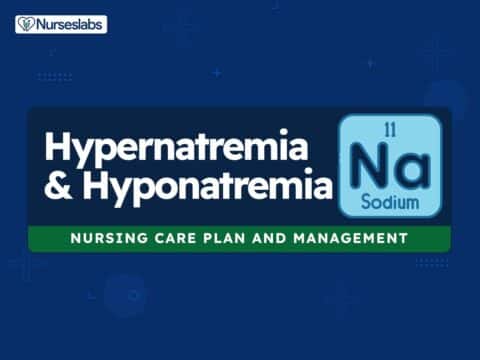











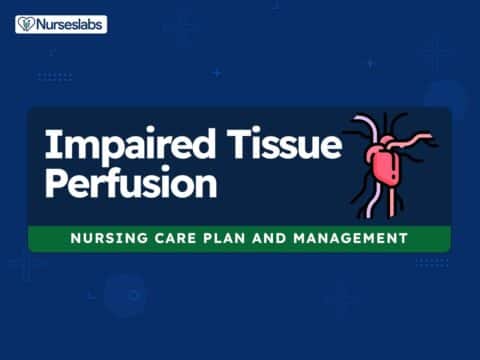

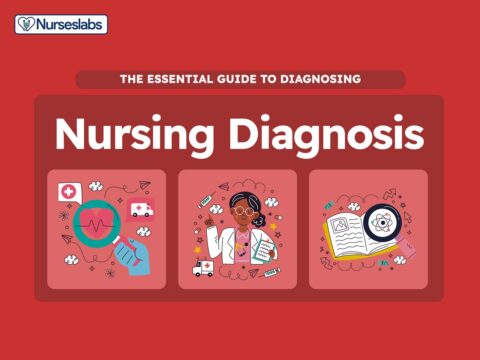
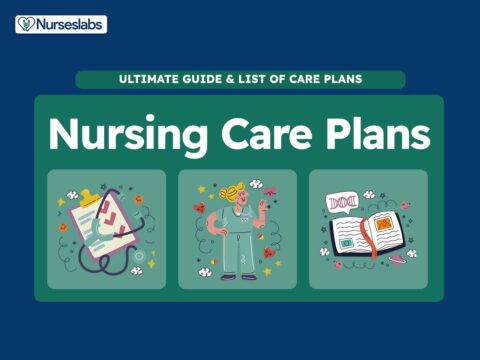







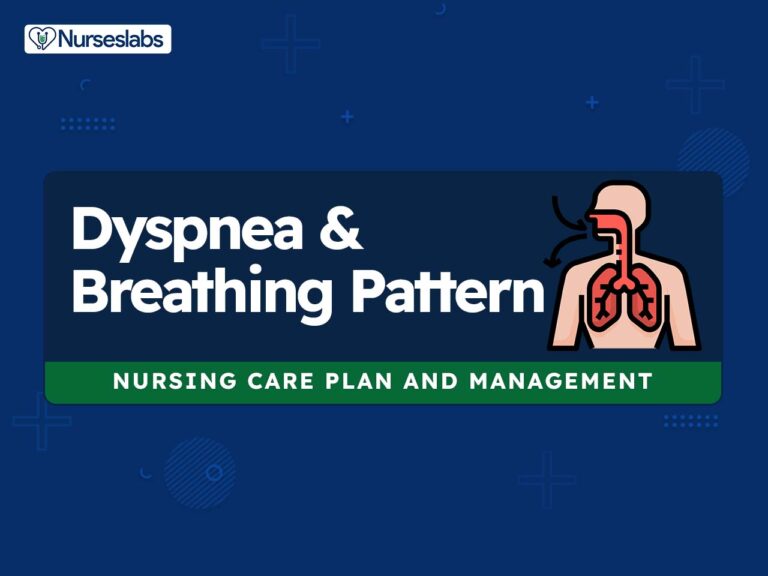




Leave a Comment